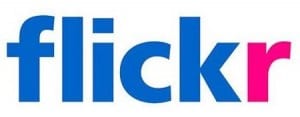When Forums Break Their Users’ Trust…
 Homesteading Today is a forum and community dedicated to, predictably, homesteading. But amongst the conversations around subsistence farming, alternate energy sources and crafting, the group forum found itself at the heart of a copyright and plagiarism controversy.
Homesteading Today is a forum and community dedicated to, predictably, homesteading. But amongst the conversations around subsistence farming, alternate energy sources and crafting, the group forum found itself at the heart of a copyright and plagiarism controversy.
The issue began when a user named “willow_girl” noticed that posts she had written were appearing on another site, Cattle Forum, under the name “Alice”. After some investigation it was revealed that Cattle Forum was owned by Carbon Media Group (CMG), which had also recently purchased Homesteading Today.
It turned out that CMG, or at least one of its employees and administrators of Homesteading Today, was using RSS to take posts from various forums at Homesteading Today and automatically populate them on other, less-active forums the company runs.
Understandably outraged, the community demanded an apology from the company and it got one from Hyaat Chaudhary, the CEO of CMG. However, that apology was so tone deaf, spending as much time trying to claim CMG was a genuine part of the homesteading community as actually apologizing, that it did little to quell the flame.
As a result, the controversy and dispute is still very much alive on the forum, with no end in sight.
Homesteading Today’s story is a cautionary tale, both for users and administrators alike but it’s a lesson that should have been learned long ago as it’s a misstep that’s been made by other, much larger sites.
(Note: If you’re interested in reading more about Homesteading Today, check out Patrick O’Keefe’s great post here. It’s extremely thorough and something I’m leaning on a bit here because of his community admin expertise.)
What’s Right vs. What’s Legal
 The ethics of what CMG did are pretty clearly horrible. It is a violation of trust not just of the posters of Homesteading Today, but of the users of the other forums who think they are participating in an active community that is just a carbon copy of another one.
The ethics of what CMG did are pretty clearly horrible. It is a violation of trust not just of the posters of Homesteading Today, but of the users of the other forums who think they are participating in an active community that is just a carbon copy of another one.
With its actions, CMG showed a tremendous amount of disregard for the real community that exists at both forums.
However, the story points to the very strange trust relationship we all have with the sites that we use every day.
If you look at the CMG terms of use, they aren’t especially egregious. At 6.2 it says.:
By posting content on the Websites, you also grant, and warrant that you have the authority to grant, the Company a perpetual, royalty-free, non-exclusive worldwide right and license to display, reproduce, adapt, modify, publish, translate, create derivative works from, distribute, perform, play, make available to the public, use, and exercise all copyright and publicity rights with respect to any and all content that you post on the Websites. If you do not wish to grant Carbon Media Group these rights, do not submit content to the Website.
While that type of license is very broad, it’s not out of the ordinary. Broad licenses are often necessary for forums, social networking sites and other places to ensure that they have the rights they need to operate. For example, if Facebook can’t make derivative works, then resized versions of your images or automatic translations of your posts would not be possible without legal risk.
This current TOS grants CMG all of the legal rights it needs to do what it did. Since the company bought the site in July and the previous TOS is unavailable, it’s impossible to say what the legal status is for most users, but anyone who agreed to this TOS did sign away enough rights to put CMG on the correct side of the law.
However, when users agree to a TOS like this one, they do so with the trust that the site will not abuse the rights they grant. The users have a very specific vision of how their content will be used and any usage outside of that, regardless of whether it is permitted or not under the TOS, is a breach of that trust.
CMG clearly breached that trust and is facing the backlash for it. However, they aren’t the first.
Flickr’s Similar Misstep
 In December of 2014, the photo sharing site Flickr found itself in a similar situation.
In December of 2014, the photo sharing site Flickr found itself in a similar situation.
Flickr launched a new program entitled Wall Art where users could order printed goods featuring photos from the site. As part of that, in addition to pre-selected photos, Flickr made it so that all photos on the site licensed under a Creative Commons license that allowed commercial use could be bought, without offering any royalty to the photographer.
The Flickr community responded very negatively to this announcement, and eventually the site backtracked on its use of Creative Commons photos.
But, while the mistakes were similar in many regards, the outcomes were different, largely because Flickr moved more quickly and decisively to handle the issue and made an apology that was more appropriate for the situation. CMG, on the other hand, has not only released a misstep of an apology, but also waffled on the corrective measures it will take, at first saying it would delete the copied posts before changing course and deleting the accounts instead.
For CMG, the Flickr story should have been both a warning alerting them to the dangers of violating the trust of their users and a template for recovery, showcasing how to dig out of the hole that they created.
However, it was neither and the result is that the mess isn’t going away any time soon.
Bottom Line
The relationship between a user and a site, whether it’s a content host, a social network or a community, is a relationship of trust. Users sign away a wide array of rights over to the site with the trust that those rights will not be abused.
Every time that trust has been breached, including when Facebook started using user photos in ads and Craigslist updated its TOS to claim full copyright ownership in photos, a backlash ensued.
Generally, that backlash is worth far less than any benefit the site might have gained by crossing the line. Craigslist, for example, made the move so it could use copyright to target sites that used its data without permission but ended up with far more bad PR than it was worth, forcing them to back off.
For Homestead Today, they wanted to seed a less-popular forum and, in doing so, may have seriously harmed or even ruined a second one. As Patrick says in his post, that trust and that relationship has been broken in a very serious way and may never be rebuilt, no matter how hard CMG tries.
This is why, when using the content from your users, you need to realize that the terms of service is just the far extremes of what you can do. The real guidelines are set by the community itself and their comfort.
Making any use of the content beyond that is not only a breach of trust, but a waste of time. That’s because you can’t exploit content for your benefit if there is no content to exploit. If your users leave or otherwise rebel, there are no posts, images or other works to monetize.
So while sites do have legitimate need for broad licenses to user content, those that abuse those rights will inevitably pay, even if it isn’t in court.
Want to Reuse or Republish this Content?
If you want to feature this article in your site, classroom or elsewhere, just let us know! We usually grant permission within 24 hours.
